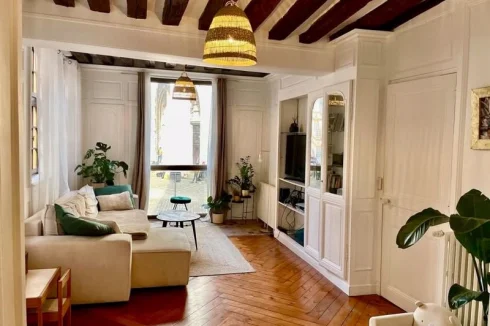Rural Land Agency 'Lacks Transparency'
Tuesday 11 March 2014
The French rural land agency ‘SAFER’ has come in for strong criticism from the French national auditor.
In a stinging report published last month, the Cour des Comptes minces few words in accusing the agency of a lack of transparency and of drifting from the terms of reference within which it is supposed to operate.
It claims that there is a lack of government control on the operations of the SAFER, and that the vast majority of their transactions are self-serving, with little regard for the purposes for which the body was established.
We have previously commented on the predatory and opaque nature of the operations of SAFER (Société d'aménagement foncier et d'établissement rural) in our article French Farm Sales and Role of SAFER .
It is an agency the Cour des Comptes itself considers is firmly in the control of agricultural interests, notably the main farmers' organisation, the FNSEA. The auditors state that "il est ainsi ressorti que les non-agriculteurs ont l'impression de rentrer dans a 'monde clos' où la profession majoritaire domine."
For sellers and buyers of property in France the SAFER regional agencies are no incidental bodies, for they have a right of pre-emption (droit de pre-emption) on most rural property and land sales that take place.
Notaires are obliged to notify SAFER of all sale and purchase contracts, following which the agency has two months to decide whether it wishes to use its right of pre-emption.
The ostensible purpose of this right is to promote the establishment of young farmers and to regroup agricultural holdings into more viable economic units. The agency also has more loosely defined rural and environmental development obligations for which they might use the right of pre-emption on behalf of other public bodies, such as the local councils.
However, as the Cour des Comptes points out, in practice less than 10% of their activities concern the installation of young farmers and in over two-thirds of the transactions (80% in value) in which they are involved they are no more than an income earning intermediary between an existing buyer and seller. Many of these transactions are for high value residential properties, with no major agricultural interest, on which they are able to receive a commission.
The act of intervening in a prospective sale and purchase is in some cases done amiably, but which in other cases SAFER do through threatening their right of pre-emption, despite appearing to have no objections to the transaction.
Once they have placed themselves between buyer and seller they then cede their place to the actual purchaser in a process called 'substitution'.
In this process no specific reorganisation of the agricultural entity takes place, but it is revenue earning for SAFER.
There is also some small reduction in the transaction costs for the buyer as sales that proceed through SAFER are exempt from stamp duty, although a commission is payable to SAFER for ‘facilitating’ the transaction.
The estate agent or notaire who may have brought together the two parties in the first place receive their commission from the sum payable to SAFER.
The losers to the transaction are the local councils, who would otherwise be the beneficiaries of the stamp duty of around 5% if the sale and purchase had proceeded in the normal manner.
The Cour des Comptes states that the intervention of SAFER in such transactions adds no value, that it is to the detriment of local authorities, and that it should be substantially curtailed. The auditors also call for a clear statement of ethical and professional standards on which the agency should operate.
Thank you for showing an interest in our News section.
Our News section is no longer being published although our catalogue of articles remains in place.
If you found our News useful, please have a look at France Insider, our subscription based News service with in-depth analysis, or our authoritative Guides to France.
If you require advice and assistance with the purchase of French property and moving to France, then take a look at the France Insider Property Clinic.





